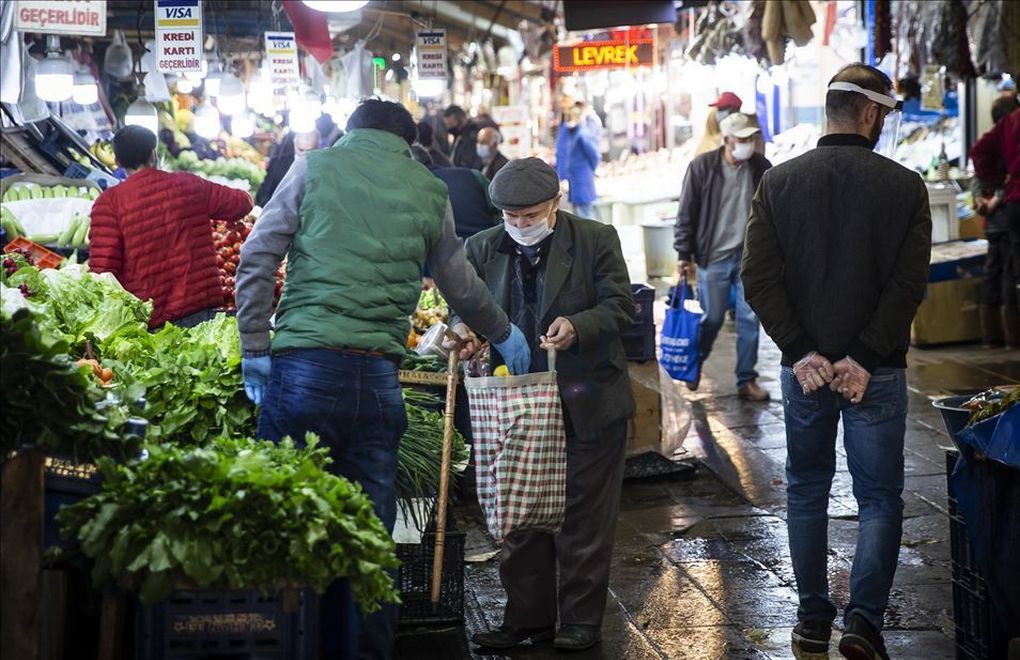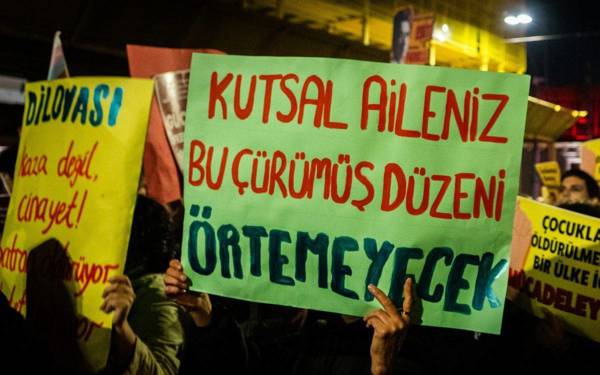* Photo: Anadolu Agency (AA) - Archive
Click to read the article in Turkish
Assoc. Prof. Özge Karadağ-Çaman from Columbia University Center for Sustainable Development (CSD) in the US has met her audience in an online conference organized by the Columbia Global Centers.
Sharing her observations regarding how Covid-19 pandemic has been affecting our daily lives and how it will set our new "normal" in terms of public health, Karadağ-Çaman's speech has been moderated by Columbia Global Centers İstanbul Director İpek Cem-Taha.
İpek Cem-Taha has also shared the questions that came before and during the event with Karadağ-Çaman.
Some highlights from the conference are as follows:
'Turkey needs to take more radical decisions'
Coronavirus measures: Every country has a different strategy. Some countries have managed to keep the number of cases very limited by quickly closing their borders and entirely breaking their connection with the outside world on land, sea and air. Then, they have detected the number of cases inside their countries, imposed isolations and quarantines. These countries have not yet opened to the outside world.
At this point, the number of cases is very important, just as your cultural characteristics are also very important. Because the cultural characteristics of countries do not resemble one another. For instance, when you tell the measures to people, the ones in the Far East - based on their experiences from previous outbreaks as well - act much more quickly. They can play along by taking individual responsibility.
Then, let's look at Mediterranean countries, the countries that like socializing, being outside and neighborliness. They can act more loosely when implementing the measures that need to be taken individually.
Curfews: If the number of cases is high, it can be imposed for a certain period of time, but not too long. It can last for 20 days or a month. But I observe and see that in those countries where curfews are more strict, control can be established more quickly and in a shorter time. But, here, the scope of the curfew is also important. For instance, it was the case in several countries. It was like that in Italy, which had very bad days, and in New York.
For instance, markets were not closed, public transportation was not suspended, public transportation worked by half capacity to especially ensure the transportation of the occupational groups supplying foodstuff. Their frequency was reduced, but the transportation of occupational groups working in food supply was ensured.
Apart from that, markets stayed open, pharmacies stayed open and people were allowed to go to the market or pharmacy whenever they wanted. I think that it is important as well. When you restrict the number of people inside the pharmacy by square meter and obligate people to wear masks, it is, in fact, doable. We have also seen that. For instance, in Italy, only one person could leave the house. He or she had to be wearing a mask. When that person went to the market, he or she queued up outside by keeping a distance of two meters if the market was small and there had to be two people inside the market the most. One person left the market, the other one enter after that.
If you can ensure this, it is possible to impose a curfew with markets and pharmacies open and public transportation still operating. Therefore, I think, by analyzing these models, new things can be adopted for Turkey. But, as I have said, as far as I can observe, the ones who take more radical measures can shorten the course of the outbreak a bit more.
'There is no room for hopelessness'
Recommendations: First of all, I think, there is no room for hopelessness. Yes, there are uncertainties and there are things that we do not know, but there are also many things that we know. Our knowledge is growing with each passing day. To me, we must accept that the period that we live in is an advantageous one. We do not live in a century ago. There is communication, there is the Internet, scientists and decision-makers have the opportunity to communicate all the time and we can do a lot of work from home.
It is possible for us to offer our services in a different way by especially using the technology. That is why, I recommend that everyone who has time these days should read about other outbreaks in history and, as I have said, they should read about past experiences. I also read about them whenever I have time. Reading these makes me relaxed.
I think, setting a goal for ourselves is very important in this process. Therefore, yes, we are - of course - constantly reading and getting knowledge and there is information that changes every day... But, if you look at the ones around you in this process, you see that the ones who have set a certain goal for themselves can get over this process much more easily.
About Assoc. Prof. Özge Karadağ-ÇamanPublic health specialist, medical doctor. She works as a public health researcher at the Center for Sustainable Development. She also holds an associate professor of public health title in Turkey with over 12 years of research and teaching experience in different higher education settings. Dr. Karadag Caman earned her medical degree at Istanbul University, and her MSc and PhD Degrees in Public Health at Hacettepe University in Turkey. She also holds a postgrad degree in health promotion from the London School of Hygiene and Tropical Medicine. Dr. Karadag Caman has more than 15 years of experience working in multicultural and multidisciplinary teams to conduct research, develop public health policies and programs for different vulnerable/disadvantaged groups, such as young people, refugee/migrant populations, people living with HIV, and persons with mental or physical disabilities. She has worked as a consultant for UNFPA, UNICEF, UNAIDS, UNHCR, IOM, WHO, and EU as well as for different ministries and non-governmental organizations. Her main research interests are vulnerable/ disadvantaged populations and health inequalities, health promotion and education, migrant/refugee health, community mental health, stigma and discrimination, community participation and sustainable development. |
(Lİ/EMK/SD)










